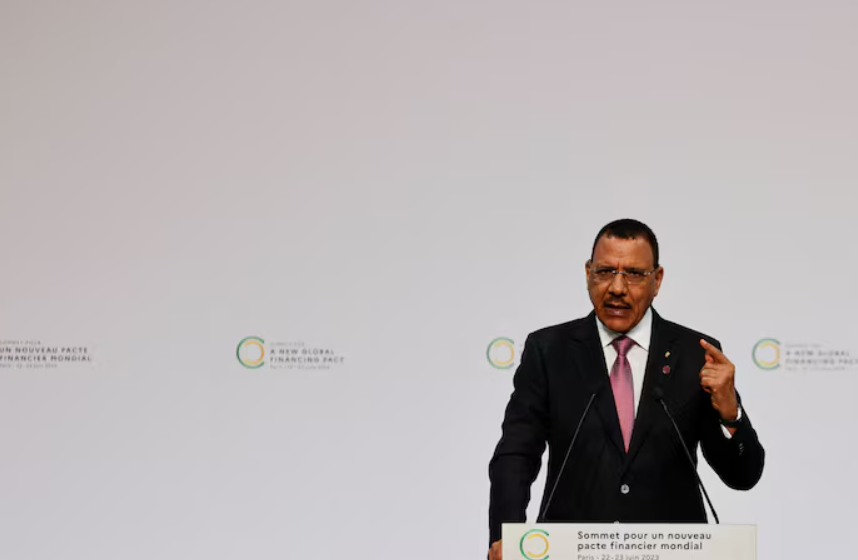June 14th, Niamey – In a major legal blow for Niger’s ex-president Mohamed Bazoum, the State Court of Niamey revoked his immunity, opening the door to possible criminal prosecution by the governing junta. There have been persistent demands from throughout the world for the release of Bazoum and his wife since they were both deposed in a military coup last July.
The court’s ruling has cleared the way for charges such as treason and conspiracy against state security, according to Moussa Coulibaly, one of Bazoum’s attorneys. Coulibaly, however, claimed limitations on their capacity to properly defend Bazoum, which led to questions over the justice of the court process.
At the time of publication, attempts to reach out to Niger’s government for comment on the court’s ruling were fruitless. In its earlier announcement, the junta claimed that Bazoum would be tried for treason due to his contacts with foreign heads of state and international organizations after the coup.
Since 2020, there have been other military coups in West and Central Africa, including the one that deposed Bazoum. Western countries and regional organizations like ECOWAS have urged the junta to reinstate Bazoum, but they have so far been unsuccessful. As arbitrary, Bazoum’s arrest was denounced last year by the ECOWAS Court of Justice.
Neither Bazoum nor his wife have had an appearance before a magistrate since their incarceration began, according to his legal team. Since October, all contact via their presidential telephone line has been cut off, drastically limiting their access to communication. They have been told that no one other than their doctor may visit them.
The international community is nevertheless very worried about the latest developments regarding Bazoum’s legal status. His arrest and the legal processes against him have raised concerns among observers and advocacy groups over the fairness of the judiciary and the ramifications for human rights.
The future of Mohamed Bazoum’s arrest and the domestic legal processes in Niger, as well as international diplomatic pressures, are uncertain at this time.


















